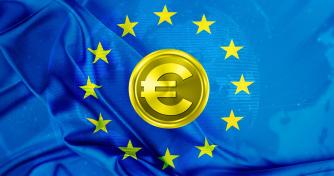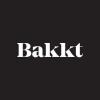 Sorry ICOs, Bitcoin and Cryptocurrencies will Gain Relevance with Starbucks and Kodak
Sorry ICOs, Bitcoin and Cryptocurrencies will Gain Relevance with Starbucks and Kodak Sorry ICOs, Bitcoin and Cryptocurrencies will Gain Relevance with Starbucks and Kodak

Photo by Subham Swain on Unsplash
Big-name brands and retail conglomerates, not ICOs, will take Bitcoin and other cryptocurrencies to the next level, according to ICOx Innovations President Bruce Elliott.
Traditional Players Will Propagate Cryptocurrency Usage
While Elliott’s company helps introduce companies to the cryptocurrency economy, much of ICOx Innovations’ business centers around big-name clients like Kodak.
Yes, ICOx Innovations is the consulting platform behind building both KodakOne and KodakCoin’s marketing efforts, and its president strongly believes a traditional market takeover will propel the cryptocurrency domain.

At the start of 2018, Elliott said he could hardly imagine corporations adopting cryptocurrencies or even considering to adopt them; however, the executive stands astonished following several noteworthy developments–including Facebook’s linkage with blockchain projects and the NYSE parent company ICE launching Baakt with Starbucks and Microsoft.
The latter’s vision is to create a “global ecosystem” for cryptocurrencies by providing easy access to the world’s fastest-emerging asset class.
And while purchasing Starbucks coffee with bitcoin is not currently possible, a point the company’s executives later clarified, the sheer attention and openness to include cryptocurrencies in their existing business framework is a significant milestone.
Scams, ICOs and Serious Projects
The big-name cryptocurrency push was possibly propelled by online retailer Overstock.com in 2013; however, companies have only now begun to explore customer interaction models with cryptocurrencies, leveraging both crypto-liquidity and brand engagement.
Elliott also mentioned that not all businesses face a smooth transition to including cryptocurrencies, citing Long Island Iced Teas’ conversion to a blockchain-branded business as a major debacle, which later caught the U.S. SEC’s attention.
However, in the midst of ICO scams and cryptocurrency naysayers, Elliott noted the “growing cadre” of companies waiting to enter the digital asset ecosystem.
There’s ample reason to validate his views as well. While Facebook, Starbucks and Microsoft have made their inroads, companies like IBM are winning patent after patent pertaining to blockchain technology and tokenization. Additionally, institutional banks are launching dedicated bitcoin trading desks and preparing the groundwork for custodian services exclusive to digital assets.
Slow but Steady
Elliott highlighted that big brands are slow-moving entities with a lot of risk-adversity toward emerging technologies. However, cryptocurrencies are too prominent to outright ignore, which companies can leverage to tap newer demographics and ensure adoption.
That said, cryptocurrencies will soon need trusted companies and widespread populaces, as well as brand awareness and loyalty, to ensure their survival–otherwise risking a possible existential crisis.
To illustrate his point, Elliott provided an example of KoDakOne’s recent partnership with Major League Baseball in the U.S., adding:
“Soon, user-generated photos will be instantly loaded to the KodakOne blockchain, with the prospect of the photographers getting paid instantly (in KodakCoins) for usage. But the even more drool-worthy part of this integration is that these same sports fans will be able to use KodakCoins to buy in-stadium soda, chips, hot dogs, beer and merchandise.”
Meanwhile, if Baakt’s ambitious plans come to fruition, an estimated 55 million people from the U.S. will have access to a bitcoin product to purchase coffee and snacks at Starbucks, in addition to any other companies Baakt can partner with.
Parallel Economies Powered by Crypto
For companies, it’s a win-win situation. Peer-to-peer networks could create a parallel financial economy and revenue for brands, in addition to tapping both tech-savvy and fashionable demographics.
Crypto tokens can also form a loyalty program for adopters, offering incentives and discounts to both hodlers and users. Furthermore, vetting tokens can find great use in the multi-billion dollar, mass-media industry, particularly through subscription-styled services and to verify news outlet reports.
Elliott noted:
“To separate themselves from the many scams, legitimate companies are doing the hard work up front–capital raising, platform development, early customer adoption–and then going to the public for an ICO raise.”
The ICOx president also stated the “components of a true economy already in place,” as tokens are already circulating and valued with regard to traditional supply-and-demand pricing models.
In conclusion, Elliott foresees sporadic outbreaks of resistance toward big-name brands entering the cryptocurrency industry. However, he suggests market forces are the best judges of a futuristic token economy, compared to one’s biases against socio-political ideologies.



 Farside Investors
Farside Investors 


 CoinGlass
CoinGlass 




























































































